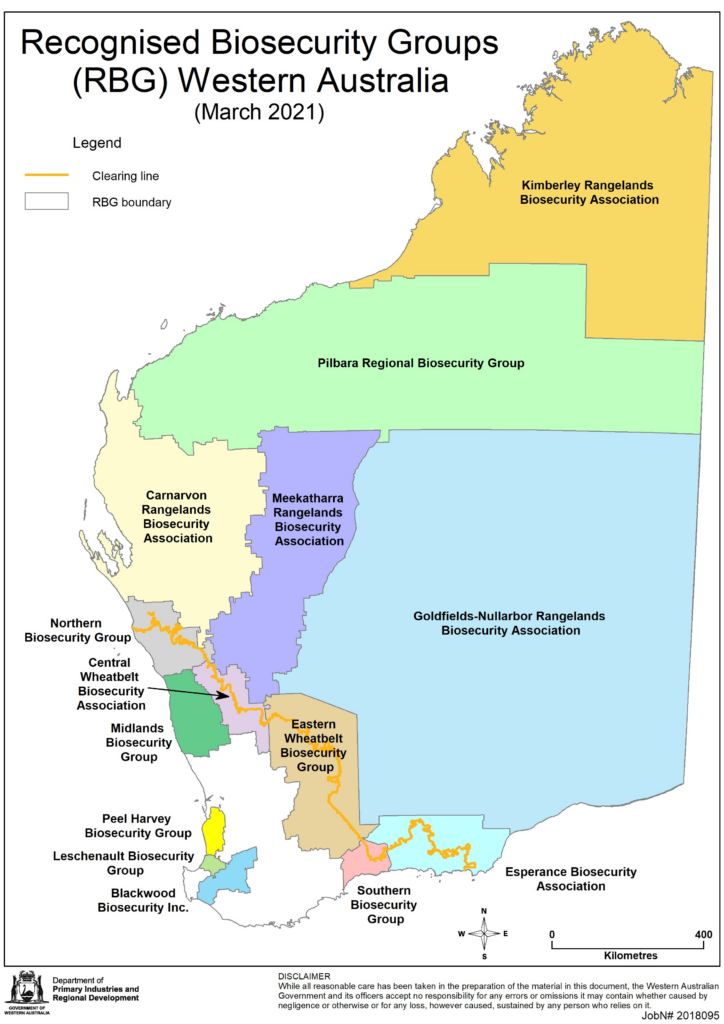Recognised Biosecurity Groups (RBGs) play a vital role in safeguarding agricultural and environmental interests across Western Australia. This fact sheet provides an overview of key initiatives undertaken by RBGs to address biosecurity challenges and promote sustainability.
1. Pest Management Programs:
- RBGs implement targeted pest management programs to control declared pests and invasive species that pose threats to agriculture, biodiversity, and ecosystem health.
- These programs include pest surveillance, monitoring, and control measures aimed at minimising the impact of pests on local communities and landscapes.
2. Biodiversity Conservation Efforts:
- RBGs are actively involved in biodiversity conservation efforts, working to protect and preserve native flora and fauna species within their respective regions.
- Through habitat restoration projects, revegetation initiatives, and wildlife monitoring programs, RBGs maintain healthy ecosystems and enhance biodiversity.
3. Sustainable Agriculture Practices:
- RBGs promote sustainable agriculture practices that prioritise environmental stewardship, resource efficiency, and long-term viability for farming communities.
- Initiatives such as soil conservation, water management, and integrated pest management (IPM) help farmers adopt environmentally friendly farming practices while improving productivity and resilience.
4. Community Engagement and Education:
- RBGs engage with local communities, landholders, schools, and other stakeholders through educational programs, workshops, field days, and outreach events.
- These initiatives aim to raise awareness about biosecurity threats, promote responsible land management practices, and empower individuals to become stewards of their local environment.
5. Collaboration and Partnerships:
- RBGs collaborate with government agencies, industry organisations, research institutions, and community groups to leverage expertise, resources, and funding for biosecurity initiatives.
- Partnerships foster innovation, knowledge exchange, and collective action, enabling RBGs to address complex biosecurity challenges more effectively.
6. Advocacy and Policy Development:
- RBGs advocate for policy changes and legislative reforms that support biosecurity, environmental conservation, and sustainable land management practices.
- By engaging with policymakers, RBGs influence decision-making processes and promote policies that align with their mission and objectives.
RBGs are at the forefront of biosecurity and environmental conservation efforts in Western Australia. Through their key initiatives and collaborative approach, RBGs make significant contributions to protecting agriculture, biodiversity, and the natural environment for current and future generations.

For more information about the Central Wheatbelt Biosecurity Association or any of the 14 RBGs in Western Australia and their initiatives, just get in touch with us at eocwba@outlook.com
